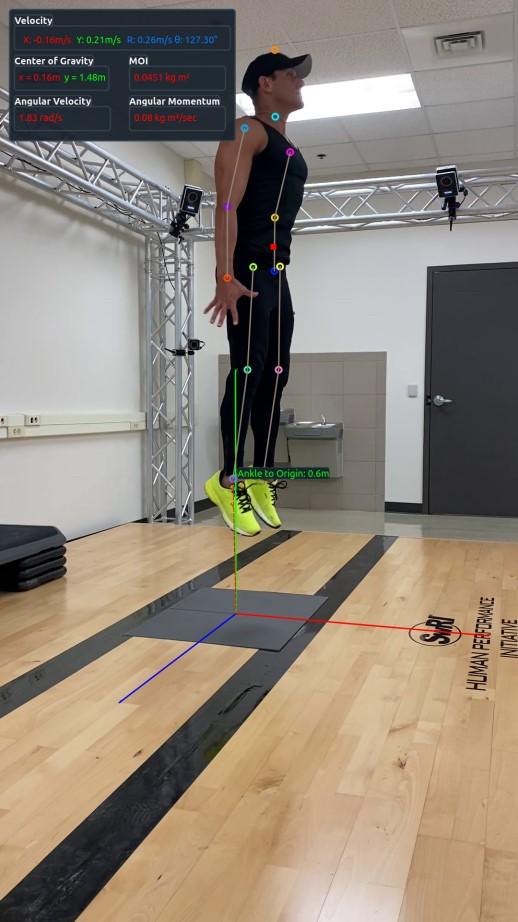Integrating markerless motion capture with machine learning to assess performance of medical trainees

Credit: SwRI/Dan Nicolella
SAN ANTONIO — Dec. 16, 2020 — Southwest Research Institute is developing a machine vision tool to help the U.S. Department of Defense assess the biomechanical movements of military medical personnel during training exercises.
The simulation-based training system will compare medical trainee performance to that of experts whose physical motions, or kinematics, have been pre-recorded and analyzed in 3D with artificial intelligence.
“Military medical training relies on subjective human evaluations where feedback may vary among trainers,” said Dr. Dan Nicolella, of SwRI’s Mechanical Engineering Division, who co-leads the Institute’s Human Performance Initiative with Kase Saylor, an Intelligent Systems Division manager. SwRI’s research will help both instructors and trainees to objectively observe how well they are performing a specific task, providing both a quantitative score, based on expert task performance, and task-specific feedback to improve performance.”
The $1.25 million project, known as Investigating Methods for Performance Overdrive (IMPROVE), is funded by the DOD’s Congressionally Directed Medical Research Programs (CDMRP), Joint Program Committee-1/Medical Simulation and Information Sciences.
The SwRI project is part of a greater DOD effort to improve patient safety and quality of care through strategic over-the-horizon research by transitioning more capable medical simulation technologies.
SwRI is adapting its markerless motion capture technology, used to assess the biomechanics of athletes as well as for clinical applications. Markerless motion capture, or MoCap, leverages computer vision algorithms to circumvent the tedious process of attaching physical body markers to a human subject when capturing motion in 3D data for biomechanical analysis in research, clinical, and sport science applications.
SwRI’s MoCap system uses standard cameras to capture video of human subjects and custom machine learning algorithms to quantify individual biomechanical performance related to walking, running, physical screening, sports, and other precise physical movements.
Applying SwRI’s technology to DOD medical training will allow complex assessments of 3D kinematic performance. The project will assess the detailed performance of trainees when they suture wounds and provide other combat and hospital care requiring precise hand movements or physical orientations.
The automated assessments will be based on SwRI-developed machine learning trained using actual data collected from ideal physical performance while completing specific medical tasks. The Uniformed Services University, a project team member, will contribute to the research with surveys and other data gathered from several military medical training programs and training best practices.
The project will focus on training custom artificial intelligence systems in a 3D biomechanical model space. This methodology will result in a biomechanically informed machine learning system to measure 3D spatial temporal biomechanics directly from 2D video data.
“We will develop advanced machine learning algorithms used in 3D markerless motion capture video analysis to improve military healthcare training,” Nicolella added.
###
SwRI is a leader in development of machine learning algorithms used in everything from automated driving to biomedical data analysis and discovery of exoplanets. For more information, visit https:/
Release url: https:/
Media Contact
Robert Crowe
[email protected]
Original Source
https:/




